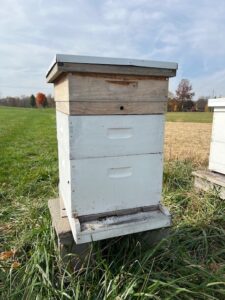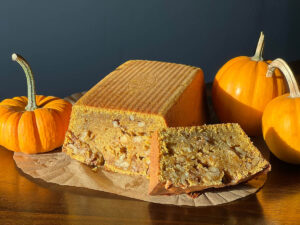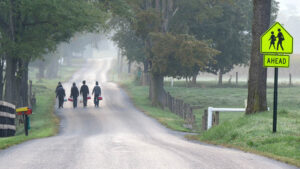This is a true story: One afternoon, I wandered out t oward the road that came in behind the house and there was a baby duck (okay, a duckling) walking along the road, quacking and crying with every step. Momma duck was nowhere to be found, and I felt sorry for the little guy, so it wasn’t long before he was quietly settled in a cardboard box in a corner of the kitchen.
oward the road that came in behind the house and there was a baby duck (okay, a duckling) walking along the road, quacking and crying with every step. Momma duck was nowhere to be found, and I felt sorry for the little guy, so it wasn’t long before he was quietly settled in a cardboard box in a corner of the kitchen.
We lived not far from a feedlot and flyswatters are a basic necessity to that kind of area. It didn’t take long for the little duck to realize that a flyswatter meant food. It got to the point that when he saw us pick up one, he would march right up and wait for his snack. If you ever wanted to find him, all you had to do was take down a flyswatter and smack the floor with it and he’d come running. He ate so many flies, that’s what we named him – Flies.
I never had to call the kids to come and swat flies because it was so cute to see Flies come running for the swatter that they loved to do it. Our fly population dropped noticeably.
Now, I can hear a lot of “ewww” and “Gross!” out there, but that’s real life. Ducks are as clean as dogs and cats, and houseflies are, unfortunately, a part of summertime. Some places have more flies than others. Some people have a fit if one fly manages to get into the house, others have learned to live with a few more buzzing around.
real life. Ducks are as clean as dogs and cats, and houseflies are, unfortunately, a part of summertime. Some places have more flies than others. Some people have a fit if one fly manages to get into the house, others have learned to live with a few more buzzing around.
If YOU have houseflies, either one or two or “a few more,” and want to get rid of them, here is how to do it: Get a duckling and a flyswatter. No, I’m kidding, but that’s number one. Other ways follow:
A simple fly trap is a glass or plastic jar with a lid. Put bait of some kind – anything sweet, or a small piece of raw meat – in the bottom of the jar. Punch a hole or two in the lid that is big enough for flies to enter the jar. They won’t be able to find their way out of the jar once they are inside. When the container is filled or the bait is finished, just throw the whole thing away, or if you’re up to it, empty it and start again.
Stores sell fancy versions of this, with special bait containing pheromones to attract flies, but the simple version works well.
Fly strips will catch flies, although they’re not exactly decorator accents. Unfortunately, to be effective, they need to be in a conspicuous place. Nevertheless, if you have a good place for them, or want to try them anyway, you can make your own. Use a quarter cup of syrup and a couple of tablespoons of sugar (brown sugar seems to attract better) and mix together well. Cut strips from brown paper bags or other sturdy paper, put a hole and a string to hang them with, then “paint” the strips with the mixture. Put them on wax paper or other non absorbent surface and allow the mixture to soak in for several hours before hanging. Don’t want to tackle that mess? Lehman’s has them already made.
Flies don’t like basil, so plant it around doors and windows, put a pot of it on your kitchen windowsill, or cultivate it as a houseplant in any (or all) rooms in your house. Clip and dry basil leaves, then crumble and put in the toe of old pantyhose to use where plants won’t grow.
Mothballs are said to repel flies. Hang them in old panty hose near the doors and windows. That doesn’t sound very pretty, does it? I would use a mesh or net bag and try to disguise it somewhat.
Sweet clover is another smell that flies supposedly do not like. The smell is quite a bit more pleasant than mothballs, but not so great if you have allergies. You can use sweet clover dried or fresh, in mesh bags or again, old (ugly) pantyhose.
Fold a newspaper lengthwise until it’s about four inches wide, then cut “fringe” on one long edge. Tape or staple the other edge to the top of your doorway. This will discourage houseflies from coming in the door.
Another method of discouraging flies from entering the house is to fill clear ziploc bags about two thirds of the way with water, then hang outside the doors. The reflection supposedly disorients flies so they cannot find the open doorway. A mirror would probably work as well, but don’t hang it where the sun will hit it directly.
Fly swatters are inexpensive and effective, if you’re talented enough to kill the housefly without making a mess. Most flyswatters sold today will last one season of good, vigorous use before becoming tattered and limp. Lehman’s to the rescue again, with a leather swatter that will last many, many times over the plastic version.
There are frugal ways of dealing effectively with houseflies. Even if you don’t have a duck.






























